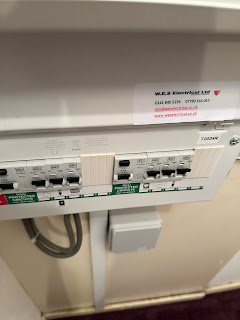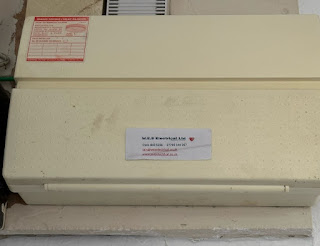# Emergency Electricians in the West End of Glasgow: Your Guide to Local Services and EICR Certificates
The West End of Glasgow, known for its vibrant culture, beautiful architecture, and bustling neighborhoods, is a fantastic place to live and work. However, like any other area, it’s not immune to electrical emergencies. Whether you’re in Hillhead, Kelvingrove, or Partick, having a reliable emergency electrician on speed dial is essential. This blog will guide you through finding the best emergency electricians in the West End and explain the importance of Electrical Installation Condition Reports (EICR).
## The Importance of Emergency Electricians
### Why You Might Need an Emergency Electrician
Electrical issues can arise at any time and often without warning. Some common emergencies include:
- **Power Outages**: Sudden loss of electricity can disrupt your daily routine and even pose safety risks.
- **Electrical Fires**: Faulty wiring or overloaded circuits can lead to dangerous electrical fires.
- **Sparking Outlets**: Outlets that spark when in use can indicate serious underlying issues.
- **Tripping Circuit Breakers**: Frequent tripping can signal an overloaded system or a more serious electrical fault.
### Local Emergency Electricians in the West End
#### Hillhead
In Hillhead, a vibrant and bustling area near the University of Glasgow, you can find several reputable emergency electricians. These professionals are known for their quick response times and expertise in handling various electrical issues, ensuring that your home or business is back up and running in no time.
#### Kelvingrove
Kelvingrove, famous for its park and art gallery, is another neighborhood where you can access top-notch emergency electrical services. Electricians here are well-versed in both residential and commercial electrical systems, providing peace of mind with their reliable services.
#### Partick
Partick, with its mix of traditional and modern buildings, often requires specialized electrical knowledge. Emergency electricians in this area are skilled in dealing with the unique electrical challenges that older buildings might present, as well as the more contemporary setups.
## Understanding EICR Certificates
### What is an EICR?
An Electrical Installation Condition Report (EICR) is a formal document produced following an assessment of the electrical installation within a property. The assessment is carried out by a qualified electrician or approved contractor.
### Why is an EICR Important?
1. **Safety**: Ensures that electrical installations are safe and do not pose a risk of electric shock or fire.
2. **Legal Compliance**: Landlords are legally required to ensure that the electrical installations in their rented properties are safe. This includes obtaining an EICR at least once every five years.
3. **Insurance**: Many insurance companies require a valid EICR for claims related to electrical faults or fires.
### Obtaining an EICR in the West End Glasgow
Local electricians in the West End of Glasgow are highly experienced in conducting EICR assessments. The process involves:
- **Visual Inspection**: Checking the condition of visible electrical installations.
- **Testing**: Performing various tests on circuits to ensure they are functioning correctly.
- **Reporting**: Producing a detailed report highlighting any issues and recommending remedial actions.
### Frequency of EICR
For most properties, an EICR should be carried out every five years. However, if a property changes hands or there are significant electrical alterations, a new EICR may be required sooner.
## Finding the Right Electrician
When searching for an emergency electrician in the West End, consider the following:
- **Qualifications**: Ensure they are fully qualified and registered with a recognized trade association.
- **Reputation**: Look for electricians with good reviews and recommendations from local residents.
- **Availability**: Choose an electrician who offers 24/7 emergency services to ensure they can respond promptly whenever you need them.
## Conclusion
Living in the West End of Glasgow comes with many benefits, but it also means being prepared for potential electrical emergencies. Having a trusted emergency electrician and understanding the importance of EICR certificates are crucial steps in ensuring the safety and functionality of your property. Whether you’re in Hillhead, Kelvingrove, or Partick, reliable electrical services are just a call away, ready to handle any emergency and keep your home or business safe.






